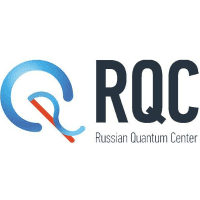The researchers of the Russian Quantum Center developed and tested the first quantum blockchain technology – a method of distributed storage and verification of financial, commercial, and other data protected by quantum cryptography, the Center announced earlier today.
10 years ago blockchain was thought of as some fun for computer geeks but times have changed since then. It first appeared as a by-product of crypto-currencies; the creators of digital money needed to exclude the possibility of fraud, for example, to make it impossible to pay with the same virtual coin twice. With hard currency, the guarantor is the State represented by the Central Bank and the entire banking system as a whole.
It is almost impossible to create a banking structure for cryptocurrency, so its role is played by a blockchain, a decentralized distributed database that can’t be hacked because its copies are stored on millions of computers around the world. Each transaction with a cryptocurrency is recorded in a “block” file which is verified with digital signatures of the involved parties. Based on the transaction data, complex nonsymmetrical mathematical operations are used to calculate the operation identifier, and the block is appended to the end of the chain from the previous blocks. A copy of this chain is stored on the computers of all participants in the system, and it is impossible to change them everywhere at once. If someone tries to perform an operation with that virtual coin, the values of the identifiers in the blocks will not match and the coin will not be accepted.
The technology of blockchain allows to do without a heavy centralized verification and data management structure and cuts out intermediaries and arbitrators who control the integrity of the transaction and administer punishment for fraud.
Futurologists believe that the economy of the future will be based on blockchains without arbitration courts, banks, and tax police because each counterparty’s honesty will be certified by the distributed system.
It’s uncertain, however, that the future of blockchain is bright and clear. There is a serious concern that the quantum computer can easily break the very mathematical algorithms on which data protection is based. Therefore, it is necessary to provide security in advance, and one of the measures can be quantum cryptography that protects the integrity of the blockchain data.
A group of researchers at the RQC developed a blockchain platform with the use of quantum key distribution. Within certain network configurations, this allows abandoning the use of those elements of blockchain that are vulnerable to attacks via a quantum computer. Quantum communications in the network put additional demands on the system when a new block is added to the chain. Thus, a quantum lock provides protection against attacks with the help of a quantum computer. This makes the Russian blockchain unbreakable even for Russian hackers. This development was tested on a heterogeneous network of quantum communications created by the RQC on the Gazprombank platform, where the method of forming blocks was demonstrated on a three-node network.
An entirely new class of various products for distributed data storage and management is being planned based on a combination of networks of quantum communications and blockchain technologies. They can be implemented in the existing networks of quantum communications. Experts predict that blockchain-based tech will create around $62 trillion in services by the mid-2020’s. At the same time, the effect of our development can further increase the market volume.

